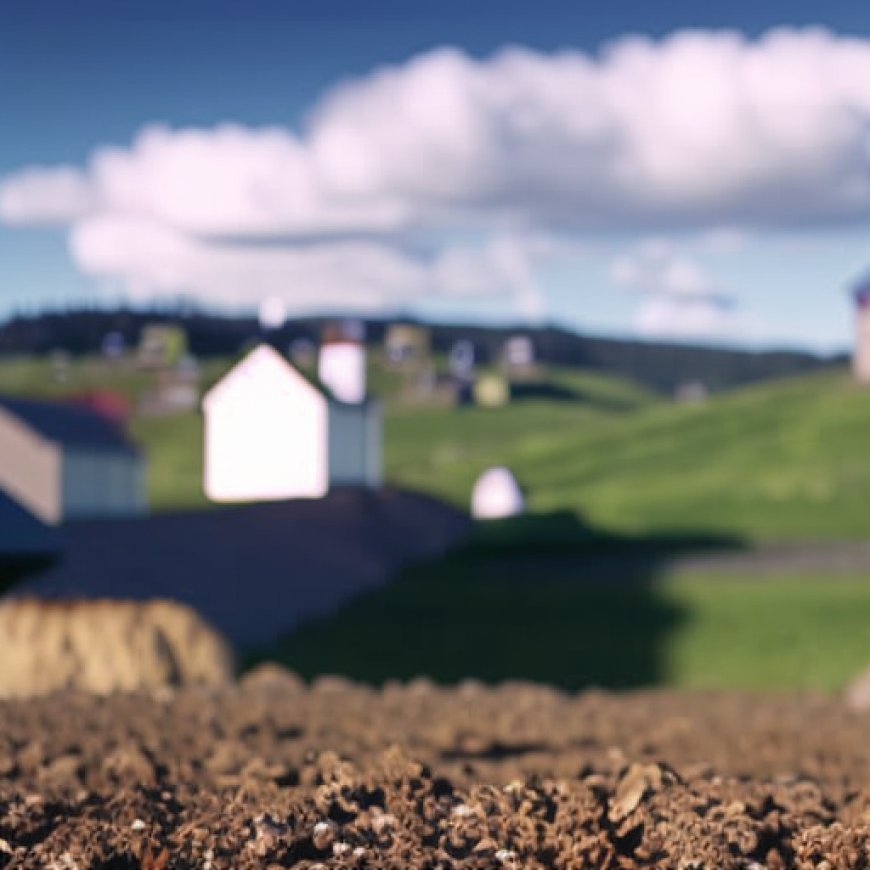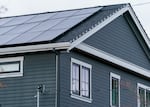Oregon awarded nearly $87 million to increase solar adopting in low-income communities
Oregon awarded nearly $87 million to increase solar adopting in low-income communities Oregon Public BroadcastingWisconsin has received a $62.4 million solar energy grant for low-income households Milwaukee Journal SentinelLow income Florida homes could get solar panels from federal funding WEAR


Oregon to Receive $87 Million in Federal Funds for Solar Adoption
Oregon is set to receive nearly $87 million in federal funds to boost solar adoption for low-income and rural Oregonians over the next five years.
Sustainable Development Goals
- Goal 7: Affordable and Clean Energy
- Goal 8: Decent Work and Economic Growth
- Goal 11: Sustainable Cities and Communities
- Goal 13: Climate Action
On Monday, the U.S. Environmental Protection Agency announced Oregon will receive $86.6 million through the Solar for All grant. The program opens the doors for low-income and rural residents and disadvantaged communities, those most impacted by climate change, to have access to these energy saving technologies without being financially burdened.
A 2022 file photo of a rooftop solar array in Portland, Ore. On Monday, the U.S. Environmental Protection Agency announced Oregon will receive $86.6 million to help low-income and rural residents of the state with the costs of installing solar power, and to support other aspects of solar adoption.
Kristyna Wentz-Graff / OPB

Objectives of the Program
- Curbing greenhouse gas emissions
- Reducing air pollution
- Creating renewable energy jobs to boost local economies
Funds will go to the Oregon Department of Energy, along with Energy Trust of Oregon and Bonneville Environmental Foundation. The awarded groups, also known as the Oregon Solar for All Coalition, will spend the first year of the five-year grant developing programs in which organizations can apply for funds, while leveraging and supporting existing solar incentives programs in place.
Actions to Boost Solar Adoption
- Providing rebates for low-income single-family households to install rooftop solar with little to no upfront cost
- Providing rebates for multi-family buildings
- Developing community solar projects that benefit low-income households and residents under the current Oregon Community Solar Program
- Strengthening the state’s green jobs workforce
“This is not a program that’s going to launch the minute we get the money,” Oregon Department of Energy senior policy analyst Rob Del Mar said. “We will be building these programs for the next 8 to 12 months, working with our community partners to get everything lined up.
According to the EPA, at least 40% of the funds must go to communities most impacted by climate change through President Joe Biden’s Justice40 Initiative.
But Del Mar said most of the funds Oregon is set to receive will go directly to those impacted communities.
“We do plan to work with community partners all across the state and what we really hope to gain with our community partners is just a better understanding of how to serve the low-income market, which as you know, unfortunately, that’s a sector that the solar rebate programs haven’t really been able to support in the past,” he said. “These new funds will give us the opportunity to go into these new areas.”
Del Mar expects the program could be ready to launch in early 2025.
ODOE Director Janine Benner said the agency is thrilled to be bringing a significant amount of funds that will be dedicated to creating more renewable energy and will help the state reach its emission reduction goals.
“While past programs have helped expand access to solar for many Oregonians, it has been a challenge to lower the costs enough to ensure low-income households and other disadvantaged communities could participate,” she said in a press release statement. “Solar for All can make this happen.”
Programs like Solar For All could help the state reduce greenhouse gas emissions while making technologies like solar panels more accessible.
The grant is part of President Joe Biden’s Inflation Reduction Act, a billion-dollar investment in climate action that seeks to help lower energy bills, boost the renewable energy job market, and lower overall greenhouse gas emissions.
“President Biden committed to making the largest investment in our nation’s history to combat global climate change. Our announcement today ensures every community has a green energy future,” EPA Region 10 Administrator Casey Sixkiller said in a statement. “This funding will be used to supercharge the deployment of solar power in communities, create jobs, make our power grid more resilient, and lower the cost of energy for every household.”
SDGs, Targets, and Indicators
1. Which SDGs are addressed or connected to the issues highlighted in the article?
- SDG 7: Affordable and Clean Energy
- SDG 11: Sustainable Cities and Communities
- SDG 13: Climate Action
- SDG 17: Partnerships for the Goals
2. What specific targets under those SDGs can be identified based on the article’s content?
- SDG 7.2: By 2030, increase substantially the share of renewable energy in the global energy mix.
- SDG 7.3: By 2030, double the global rate of improvement in energy efficiency.
- SDG 11.3: By 2030, enhance inclusive and sustainable urbanization and capacity for participatory, integrated, and sustainable human settlement planning and management in all countries.
- SDG 13.2: Integrate climate change measures into national policies, strategies, and planning.
- SDG 17.16: Enhance the Global Partnership for Sustainable Development, complemented by multi-stakeholder partnerships that mobilize and share knowledge, expertise, technology, and financial resources.
3. Are there any indicators mentioned or implied in the article that can be used to measure progress towards the identified targets?
- Percentage increase in the share of renewable energy in Oregon’s energy mix.
- Percentage improvement in energy efficiency in Oregon.
- Number of low-income households and rural residents benefiting from solar adoption programs.
- Reduction in greenhouse gas emissions in Oregon.
- Number of renewable energy jobs created in Oregon.
Table: SDGs, Targets, and Indicators
| SDGs | Targets | Indicators |
|---|---|---|
| SDG 7: Affordable and Clean Energy | 7.2: By 2030, increase substantially the share of renewable energy in the global energy mix. | Percentage increase in the share of renewable energy in Oregon’s energy mix. |
| SDG 7: Affordable and Clean Energy | 7.3: By 2030, double the global rate of improvement in energy efficiency. | Percentage improvement in energy efficiency in Oregon. |
| SDG 11: Sustainable Cities and Communities | 11.3: By 2030, enhance inclusive and sustainable urbanization and capacity for participatory, integrated, and sustainable human settlement planning and management in all countries. | |
| SDG 13: Climate Action | 13.2: Integrate climate change measures into national policies, strategies, and planning. | Reduction in greenhouse gas emissions in Oregon. |
| SDG 17: Partnerships for the Goals | 17.16: Enhance the Global Partnership for Sustainable Development, complemented by multi-stakeholder partnerships that mobilize and share knowledge, expertise, technology, and financial resources. | Number of low-income households and rural residents benefiting from solar adoption programs. |
Behold! This splendid article springs forth from the wellspring of knowledge, shaped by a wondrous proprietary AI technology that delved into a vast ocean of data, illuminating the path towards the Sustainable Development Goals. Remember that all rights are reserved by SDG Investors LLC, empowering us to champion progress together.
Source: opb.org

Join us, as fellow seekers of change, on a transformative journey at https://sdgtalks.ai/welcome, where you can become a member and actively contribute to shaping a brighter future.







